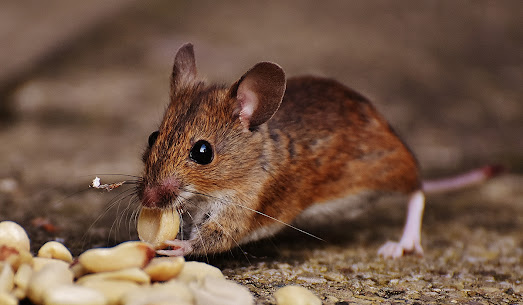Here are some common questions about rodents
Will rodents eat wood?
Rodents don't eat wood, but they're capable of gnawing thereon and damaging it. Rats can, and will, chew through the foremost wood utilized in construction to realize access to harborage, food, water, and heat. Rodents crush with their incisors and leave recognizable tooth marks on surfaces they damage.
Why are rodents challenging to manage?
Rodents like Norway rats, roof rats and house mice are very difficult to regulate because they need to learn to measure successfully around humans – we inadvertently help them get their basic needs met. Rodents have high reproductive rates, are secretive, and understand how to avoid predators, learn their environments, and use various sorts of food and shelter.
Are rodent droppings dangerous?
Rodent droppings aren't only unsightly, disgusting, and a symbol of infestation, but they will also harbour pathogens that will make us sick. Rodent feces that contaminate food can cause gastrointestinal disorders, and exposure to rodent droppings also can cause Hantavirus and rat typhus.
Why is rodent control important?
Rodents transmit diseases, contaminate food and surfaces, and damage our things. The control reasons go far beyond the "ick" factor. The truth is that rodent control should be emphasized and prioritized entirely it currently is.
How do I get rid of rats in walls?
Any rodent activity within your facility is often damaging to your product, employees, and facility. If you think of current rodent activity, contact the best pest control in Canberra to require preventive measures; inspect the inside and exterior of your facility for any cracks or openings that rodents could also be ready to use as entry points.
How can I get rid of roof rats?
The key to black rat control is identifying how they're entering a building, how they're moving within the building, and eliminating sources of food, water, and shelter. Roof rats move quickly in three dimensions which significantly complicates our efforts to regulate them. Black rat control is an inspection-heavy process, and various management techniques must be used to handle a lively infestation.
Where do roof rats live or hide during the day?
Rodents are secretive and spend the daylight hours in nests and harborages that decrease the likelihood of being seen. Roof rats prefer to nest or hide among dense vegetation and heavy ground cover, in cavities, around trash and woodpiles, and indoors in attics, ceilings, and structural voids.
What diseases are spread by rats to humans?
Rats are a primary vector of leptospirosis, rat-bite fever, trichinosis, and murine typhus. Additionally, they can help transmit plague and Lyme disease by enabling ectoparasites to flourish and spread. In addition, rats can harbour biting lice, fleas, and ticks that can feed and transmit diseases to humans and pets.
What are the rat infestation health risks?
Rats are a primary vector of leptospirosis, rat-bite fever, trichinosis, and murine typhus. They can also help transmit plague and Lyme disease by enabling ectoparasites (fleas, lice, ticks) to flourish and spread. The droppings and urine almost constantly excreted by rats also harbour pathogens that can make us sick. Rat feces contaminate food and can cause food poisoning.
Source: www.copesan.com
Looking for more rodent resources?
Watch the rodent-specific YouTube playlist!
You might want to read the following:
Comments
Post a Comment